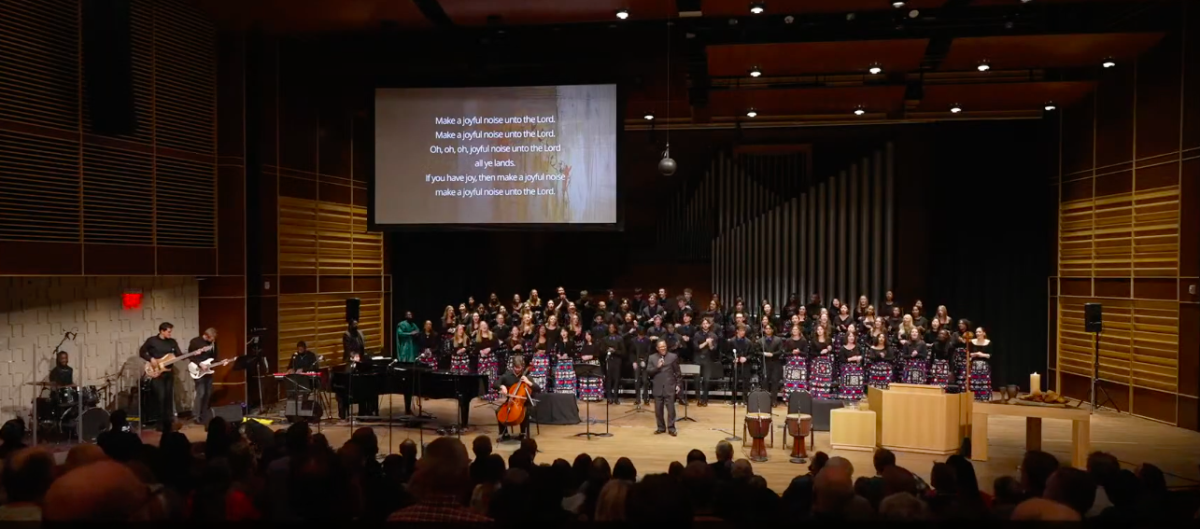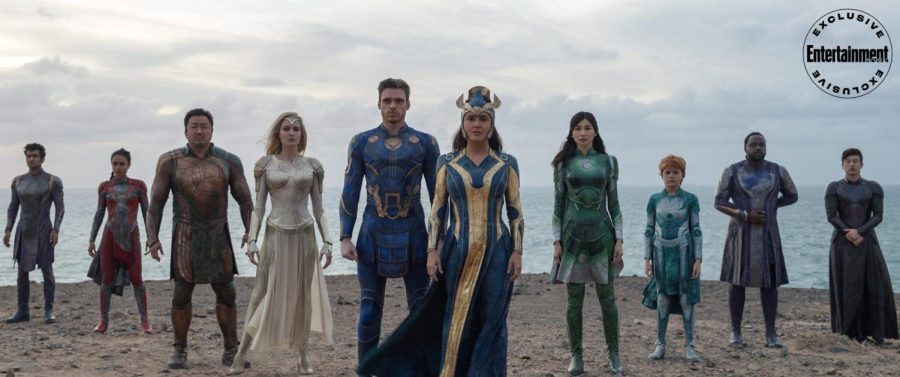In 2014, one of the more intriguing trends in Hollywood will be the advent of major studio-funded Christian-themed films. The trend began in earnest with February’s “Son of God,” a film about the life of Jesus that was adapted from the History Channel’s highly successful miniseries “The Bible,” while this December will see Ridley Scott’s take on the story of Moses with “Exodus: Gods and Kings,” which will star Christian Bale and Aaron Paul. While there is little word on Scott’s film so far, the year’s other, and most certainly controversial, big-budget biblical epic was revealed to audiences last weekend: Darren Aronofsky’s “Noah.”
Aronofsky’s bold and daring take on the classic biblical tale follows the story of Noah (the great Russell Crowe), a man who is trying to protect his wife and three sons from the wickedness of the world. After a series of visions from God (who is only referred to in the film as the Creator) about a forthcoming flood that would destroy all of mankind, Noah sets out to build an ark that would allow for the world’s supply of animals and his family to be saved. But after he observes the wickedness of man first-hand and a miracle happens to one of his family members, Noah’s faith in his mission begins to be tested.
While “Noah” is a tad too long and occasionally features some misguided narrative flourishes, the film largely succeeds as a compelling and emotionally striking account of the biblical tale, thanks in large part to Aronofsky’s excellent direction. The acclaimed director of films like “Requiem for a Dream” and “Black Swan,” Aronofsky continues to prove how much of a visual master he is. The look of “Noah” is nothing short of beautiful. Aided greatly by Matthew Libatique’s gorgeous cinematography and Industrial Light and Magic’s strong visual effects, Mark Friedberg’s top-notch production design gives each scene of the film a strong sense of visual wonder. “Noah’s” great visuals are best exemplified by a montage part way through the film of the world’s creation — complete with a word-by-word account of the opening of the book of Genesis — that is equally brilliant and beautiful.
As strong a film as Aronofsky’s version of the biblical story of Noah is, the film isn’t going to please everybody. A passion project of his since he was a teenager, Aronofsky’s film generally follows the narrative of chapters 6-9 of Genesis, but also takes on a good deal of embellishment. The film includes a race of rock creatures known as the Watchers, who are fallen angels that help protect the ark. As visually striking as the Watchers are, their inclusion in the story is a little odd. In addition, a large battle sequence that occurs halfway through the film has no real bearing on the story and seems like it is straight out of “The Lord of the Rings.” And while it is not as present as it could have been, the film does possess the foundation of an environmentalist ideology.
While Aronofsky and co-writer Ari Handel’s screenplay is bogged down by these inclusions, their script does succeed in providing an account of the biblical story that is emotionally resonant. With the exception of Noah’s youngest son Japheth, each character in the film possesses a fully realized sense of emotional depth. The depth of Aronofsky and Handel’s characterizations allows for the viewer to root for Noah even amidst the dark decisions he makes in the film’s second half. The scenes on the ark are where “Noah” is at its most compelling, as the struggle that Noah undergoes creates a tension that is palpable and powerful.
The power of Noah’s struggle is enhanced greatly by Russell Crowe’s commanding performance. Crowe, who for the last few years has seemingly been on autopilot with films like “Broken City” and “Winter’s Tale,” delivers an intense and emotional portrayal of a man so full of conviction and faith that he will do anything to carry out God’s plan. Crowe’s Noah is the type of rich and complex piece of acting that was characteristic of his early career peaks, which saw him receive three consecutive leading actor Oscar nominations, including a win for the 2000 epic “Gladiator.” Hopefully this performance is a sign of good things to come for the embattled star.
As dominant as Crowe is in the film, the excellent supporting cast that Aronofsky surrounds him with all turn in strong work. Jennifer Connelly, who won an Oscar for her turn opposite Crowe in “A Beautiful Mind,” gives her best performance in years as Noah’s wife, Naameh. As Ila, a girl who is rescued by Noah and his family and becomes oldest son Shem’s love interest, Emma Watson continues her promising post-“Harry Potter” career with another strong turn, particularly in the film’s dark third act. Character actor Ray Winstone provides the proper amount of intensity as the film’s personification of free will, the villainous Tubal-Cain, while Oscar-winning Anthony Hopkins is solid in his small role as Noah’s grandfather, Methuselah.
While Aronofsky’s take on the story of Noah may not be the version that will please everyone, the movie’s beautiful visuals and impressive performances make for a compelling and powerful moviegoing experience. And if its strong performance at the box office last weekend means anything, then the film should be able to weather the storm of its controversy.








